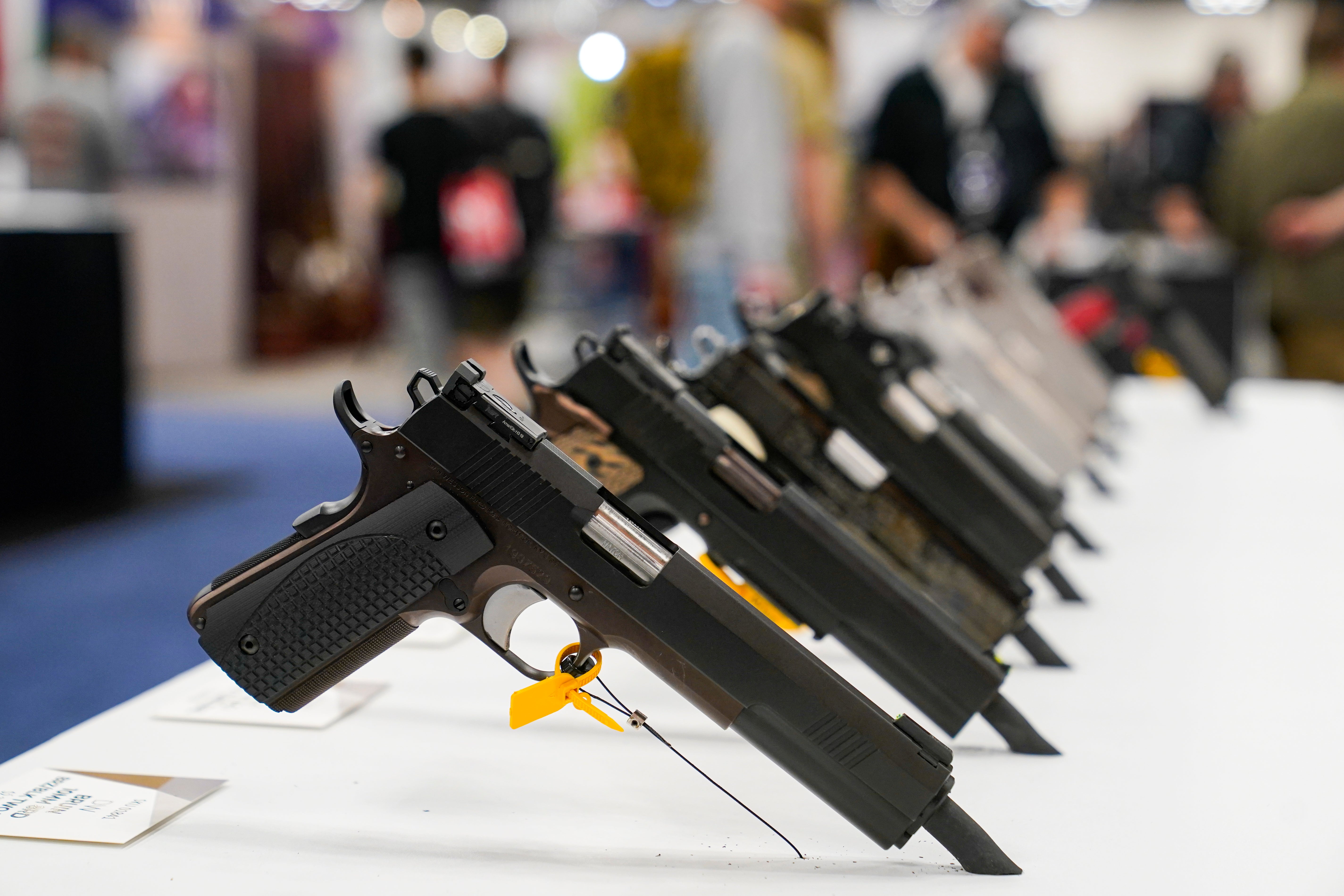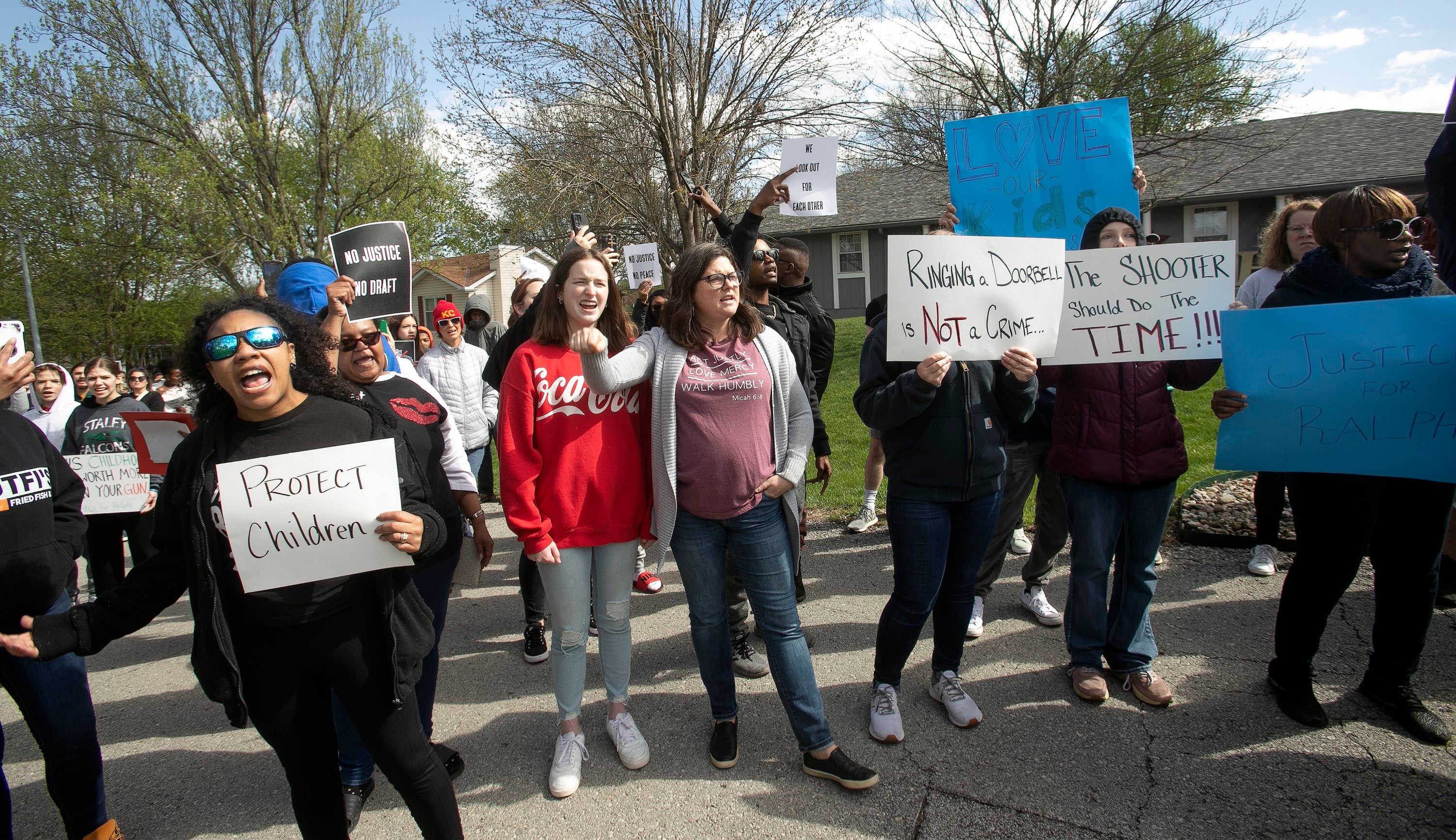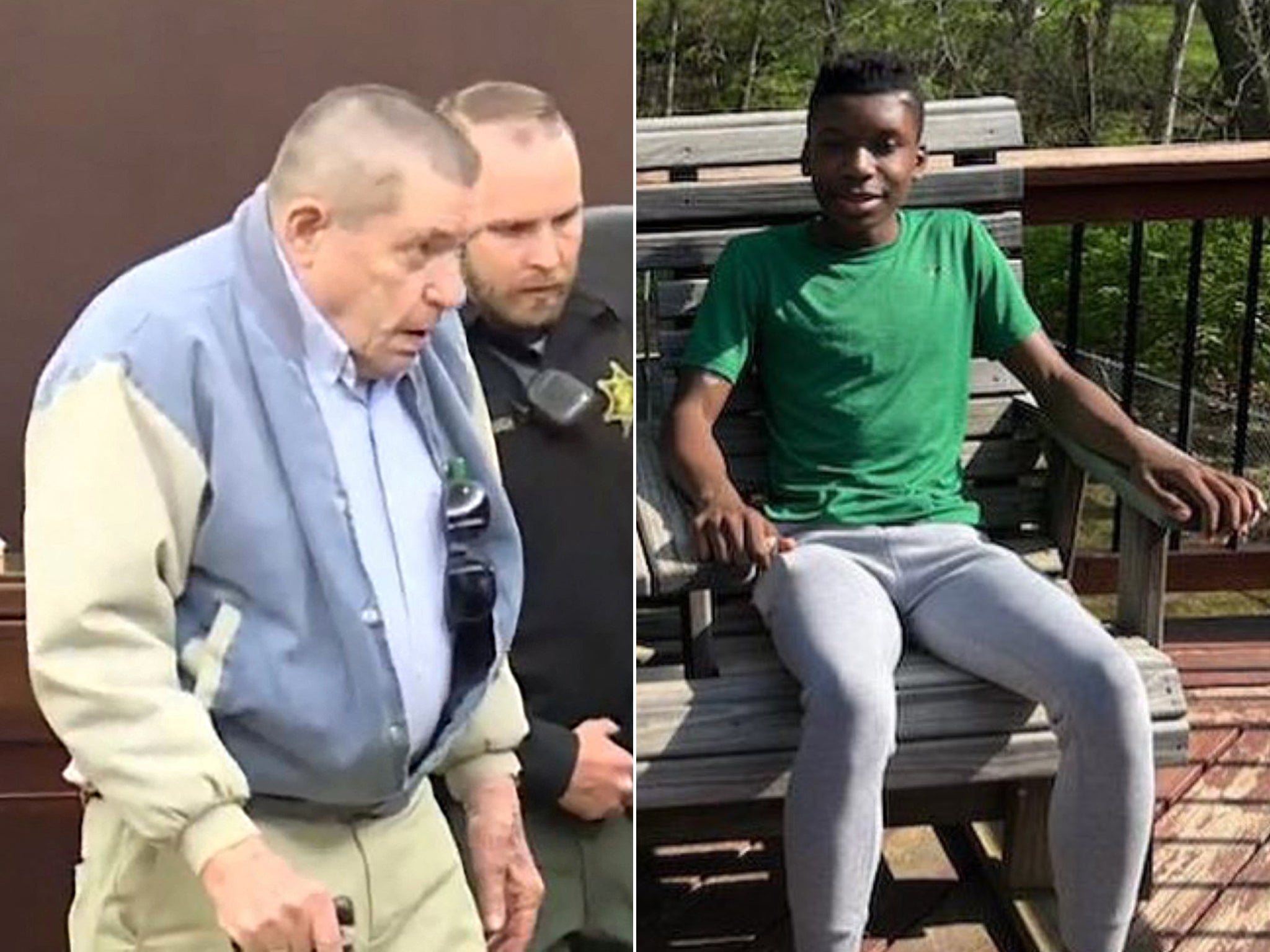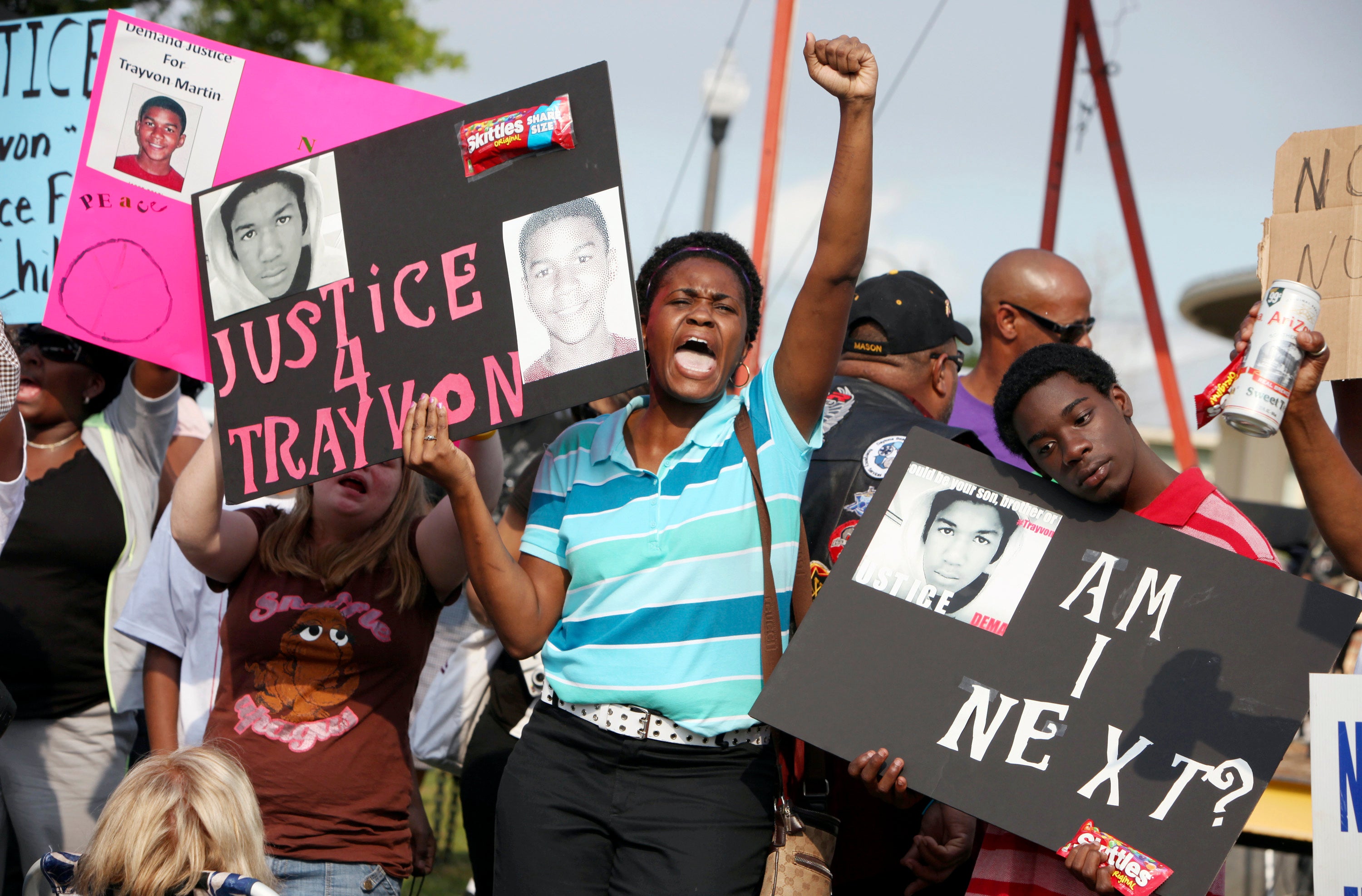‘License to kill’: How ‘Stand Your Ground’ gun laws are fuelling random shootings and racism across the US
Josh Marcus reports on a growing body of laws making it easier to ‘shoot first and ask questions later’


In America, seemingly any interaction, from the innocuous to the intimidating, can end in gun violence.
Consider this year alone.
April saw multiple high-profile shootings. In Kansas City, Ralph Yarl, a Black 16-year-old with dreams of pursuing a career in engineering, was shot at point blank range for ringing the wrong doorbell. A group of young cheerleaders in Texas were shot when one accidentally entered the wrong car in a grocery store parking lot. Kaylin Gillis, 20, was fatally gunned down in rural New York after mistakenly pulling into the wrong driveway. And Kinsley White, a six-year-old from Gastonia, North Carolina, was shot alongside her parents when her basketball rolled into a neighbour’s garden.
The violence continued into August, when University of South Carolina student Nicholas Anthony Donofrio, 20, was fatally shot when he violently attempted to enter the wrong home near campus. At the end of the month, police announced the killing was legally justified, citing state self-defence laws.
Experts say these unpredictable acts of violence are made worse by so-called “Stand Your Ground” laws, provisions that the US Commission on Civil Rights once dubbed a “license to kill.”
"If this is the sort of thing where ‘stand your ground’ can be enforced, then every US postal worker, every Amazon delivery person, every pizza delivery person, every Girl Scout volunteer, anybody knocking on your door now becomes someone who’s subject to be shot," Kansas City Mayor Quinton Lucas said of the Ralph Yarl shooting in an interview on MSNBC.
Traditionally, under the law of self-defence, deadly force is considered a last resort, and people generally have a duty to retreat from a situation if possible before resorting to lethal violence, according to Professor Kami N Chavis, director of the William and Mary Law School Center for Criminal Justice Policy and Reform. At home, though, the “castle doctrine” often applies, meaning one doesn’t need to retreat from a deadly threat.
However, she told The Independent, in the estimated 35 states with explicit Stand Your Ground legislation or similar provisions, the law takes things one step further. In these (often Republican) states, the castle doctrine has been expanded and the duty to retreat eliminated in venues well beyond the home. Fatal force can be used not just to stop imminent threats of harm, but also prevent burglaries, or in states like Florida, even to stop an unarmed person from entering an unoccupied vehicle.
“I am opposed to stand your ground laws because they don’t allow people to de-escalate their situations,” Professor Chavis said.
The first such law passed in Utah in 1994, and they’ve since spread across the country with the backing of millions of dollars from the gun lobby and the political clout of conservative-leaning advocacy outfits like the American Legislative Exchange Council, according to Ari Freilich, state policy director of the Giffords Law Center, an advocacy group attempting to reduce gun violence.
Despite this concerted and highly successful effort, the laws, he said, weren’t even proposed as a solution to any well-defined problem with public safety or criminal justice law.

“There was no real problem that they were solving,” Mr Freilich said. “There’s not a person sitting in jail that they’re pointing to saying that their use of force should’ve been justified.”
Rather, Mr Freilich said, Stand Your Ground came about as the gun industry was trying to drum up new sales with the decline of traditional money-makers like hunting.
“It took them some time. They have now developed a new market. That market was fear-based,” he said.
The new business plan revolved not around selling hunting rifles, but rather high-powered semi-automatic pistols and assault weapons for a newly ascendant notion of “self-defence,” playing on racialised fears about the rise of terrorism and urban violent crime.
It’s hard to believe, but in the 1970s the National Rifle Association was once in favour of restrictions on personal gun use, a reaction to calls from groups like the Black Panther Party for Black people to legally arm themselves in self-defence. Now, the NRA is a key backer of legislation in the half of US states where it is legal to carry concealed weapons without a permit.
The combination of numerous guns, relaxed standards for self-defence, and poorly trained but highly armed individuals has caused a powder keg in states with Stand Your Ground laws.
Numerous studies suggest such laws drive up homicide and gun violence rates. In Florida, whose NRA-backed, 2005 Stand Your Ground law has inspired numerous immitators across the country, the state experienced a 32 per cent increase in gun homicides after the law was in place.

Stand Your Ground cases also invite personal, and often racist, subjective judgements into lethal situations, according to experts. First, an individual’s perception informs when they think they’re under threat, then a jury must decide whether that was reasonable.
According to the evidence, this scheme often ends up creating a shadow right to self-defence, where white people claiming to be under threat from Black people are trusted at greater rates than when the situation is reversed.
In Stand Your Ground states, 45 per cent of cases with a white shooter and a Black victim were deemed justified, compared with just 11 per cent of cases with a Black shooter and a white victim, according to a 2021 Giffords report.
“If we’re going to have these laws, they seem to have some racial inequities built in,” Professor Chavis said. “That may not be a problem with that law, that’s a societal issue. If we know that and we study that, we ought to try and remedy that.”
If not, she said, there will be more cases like Ralph Yarl’s, where an individual’s perception causes violence with lifelong effects.
“Black adults deliver mail and DoorDash and Uber Eats and have car trouble... This law is just another avenue to perpetuate racial disparities and to allow people to unfortunately exercise their racial prejudices implicitly or explicitly in very dangerous ways,” she added.
“Your very being cannot be a threat.”
And yet it seems that may be exactly what happened in Ralph Yarl’s case.

The teen was sent to pick up his younger brothers from a friend’s house, and suspect Andrew Lester, an 84-year-old white man, shot him within seconds of the youth approaching his front door. The man, now charged with assault, told police he was “scared to death” by the sight of the child on his doorstep.
Legal experts like Professor Chavis say Mr Lester, who has pleaded not guilty and is scheduled to appear back in court 31 August, doesn’t have a particularly strong self-defence case – even with all the subjectivity the law allows, touching a doorknob isn’t a lethal situation to most people – but Stand Your Ground law has a way of defying common sense notion when it comes to the concept of self-defence.
In 2012, for example, the killer of Trayvon Martin, a 17-year-old Black boy, was acquitted in part under the law. Local resident George Zimmerman called local police to report a “real suspicious Black guy” wearing a hoodie in his neighbourhood. Even though 911 operators urged Mr Zimmerman not to pursue the youth, he did so anyway, and killed the teen in an altercation that followed.

More recently, in 2020, there was the case of Ahmaud Arbery in Georgia. Two armed white men chased the Black man down in a truck, thinking he had trespassed at a local construction site, cornering him before eventually fatally shooting him. Police initially declared the conduct a justified homicide under Georgia’s Stand Your Ground law.
If self-defence can include an interaction one deliberately provoked, there is little that seems to fall outside the concept.
There are some signs, however, that despite the proliferation of guns into everyday life, and laws which make their use less likely to face scrutiny, some officials believe self-defence and Stand Your Ground have their limits.
In California, legislation is moving forward requiring people to pass a written safety test, with questions about safety and de-escalation, before acquiring a licence to carry weapons in public.
The Ralph Yarl shooting is being investigated as a hate crime.
In a country with more than one mass shooting per day and more firearms than people, barring dramatic changes to gun laws and US society more broadly, the next random shooting seems less a matter of if, but when.
Beyond just what’s on the law books, Mr Freilich of the Giffords Center says Stand Your Ground is reflective of a larger cultural message.
“That has been interpreted, that has been heard by some people, as an unambiguous encouragement for people to use force in more situations and more impunity, to shoot first and ask questions later,” he said.


